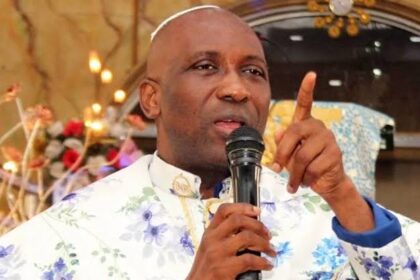The Central Bank of Nigeria (CBN) and the Nigerian Communications Commission (NCC) are collaborating to save telecommunications giant Etisalat from going under on account of the $1.2 billion controversial syndicated loan owed a consortium of 13 local banks.
The regulators’ intervention is aimed at saving the jobs of the over 4,000 workers employed by Etisatat and prevent asset stripping.
Spokesman for the apex bank, Isaac Okorafor, said yesterday that the debt problem was a delicate one requiring the intervention of the CBN and the NCC.
“Although it should ordinarily not be the role of a regulator to decide how individual bad loans are resolved, the CBN believes that Etisalat is a systemically important telecommunications company with over 20 million subscribers that if not well handled, may have negative implications for the banking system itself,” he said.
He said the regulating agencies reached an agreement to intervene and implore the consortium of banks to reassess their position in dealing with Etisalat.
He said the CBN and the NCC would soon meet with the creditor banks and the IHS Towers, the tower managers and the equipment suppliers, for the purpose of achieving what he termed “a win-win outcome” for all stakeholders.
The consortium of banks had, earlier yesterday, called off further talks with the NCC on the loan issue.
The banks gave no reason for their action which was scheduled for yesterday morning.
They had planned to take over Etisalat by 5 o’clock last night.
The commission’s Director of Public Affairs, Mr Tony Ojobo, told The Nation on the phone that the management of the NCC was waiting for the representatives of the banks for further discussion on the way out of the crisis, only for one of their representatives to call to say they were no longer coming.
Asked whether a new date had been fixed for further talks, Ojobo answered in the negative.
He, however, explained that the management of the NCC was open to further discussion on the matter.
He said: “The only update on this issue is that we were to have a meeting with them today (Friday), but they called to say they would not be able to come for the meeting.
“We are open to further talks and discussion on this matter, but as it is, since they are not coming for the meeting, we are waiting to see what will happen.
“If they said they are taking over Etisalat by today, it does not mean that they possess the licence. We have made our position known as a regulatory body that the licence is not transferable.”
The NCC had, in a statement, maintained during the week that it was aware of the indebtedness of Etisalat to the consortium of banks, but stressed that the development would not prevent subscribers from enjoying the services provided by Etisalat as it was working to ensure that the issues were resolved.
It also drew the attention of the banks to the provisions of the Nigerian Communications Act (NCA) 2003 Section 23, sub section 1 : that the grant of a licence shall be personal to the licencee and the licence shall not be operated by, assigned, sub-licensed or transferred to another party unless the prior written approval of the Commission has been granted;
Sub Section 2 that: a licensee shall at all times comply by the terms and conditions of the licence and the provision of this act and its sudsidiary legislation.
Etisalat is embroiled in a loan repayment stalemate with a consortium of 13 Nigerian banks that gave it a facility of about US$1.2 billion.
The company has been unable to meet its repayment obligations in line with agreed terms of the facility.
Given the inability of Etisalat to come to an acceptable agreement with the banks, the largest shareholder in the company, Dubai-based Mubadala Development Company of the United Arab Emirates, has now pulled out of the company as well as the ongoing negotiations, leaving only their local partners led by Hakeem Belo-Osagie, to carry the burden.



